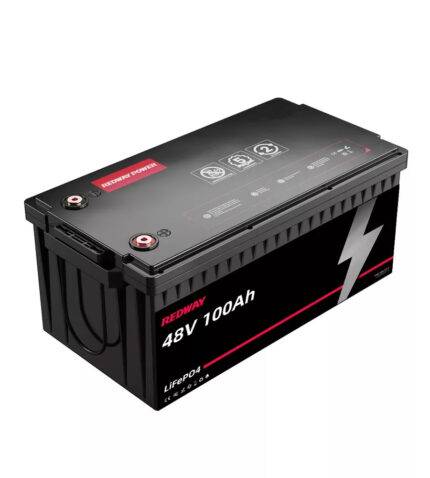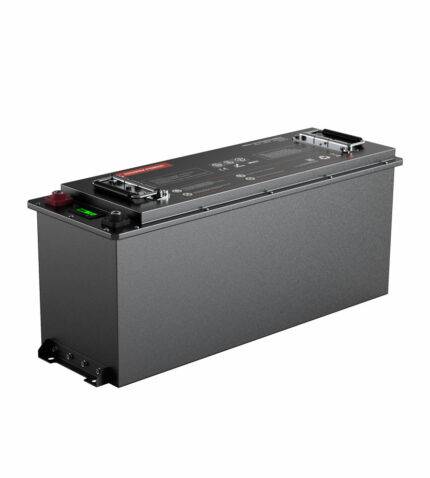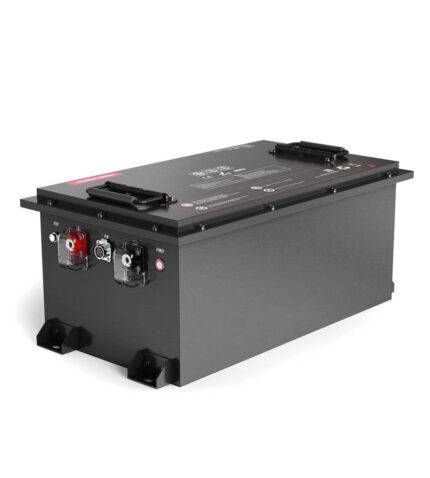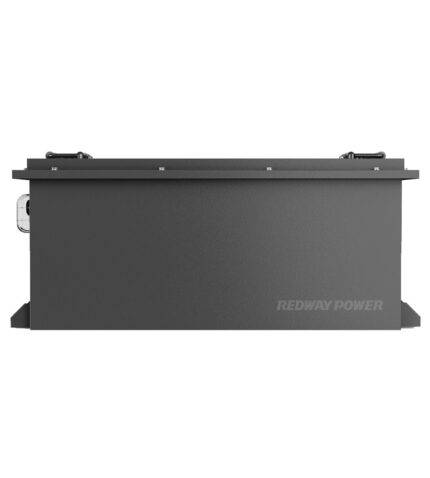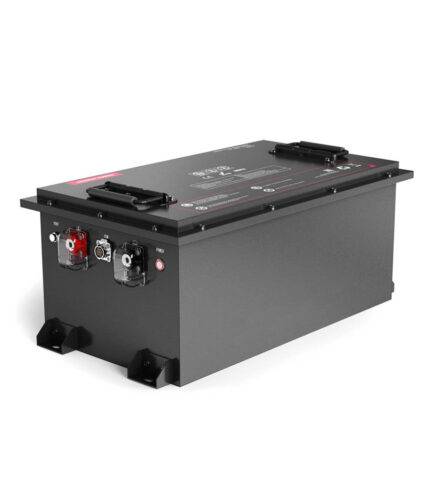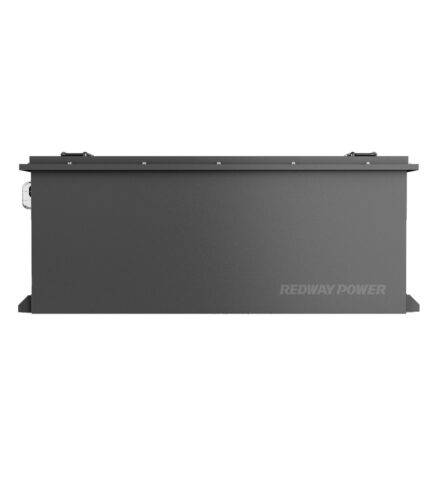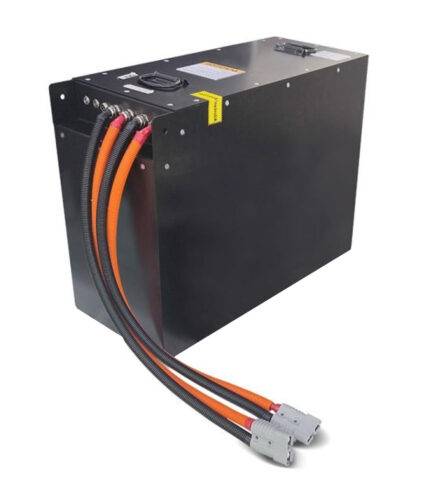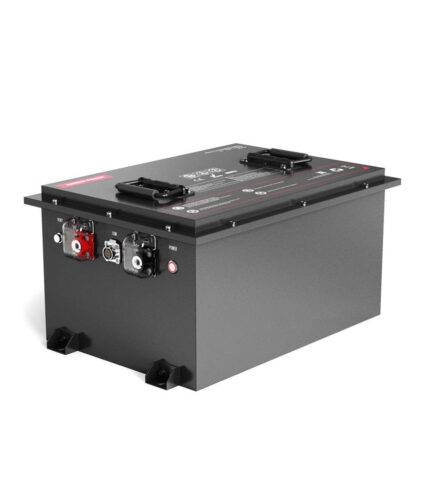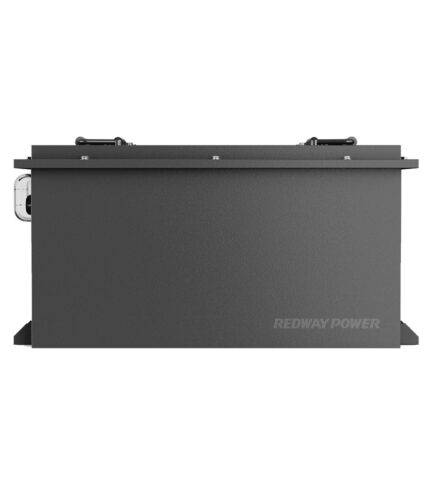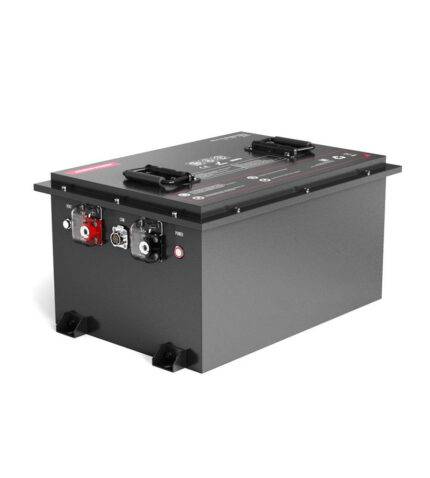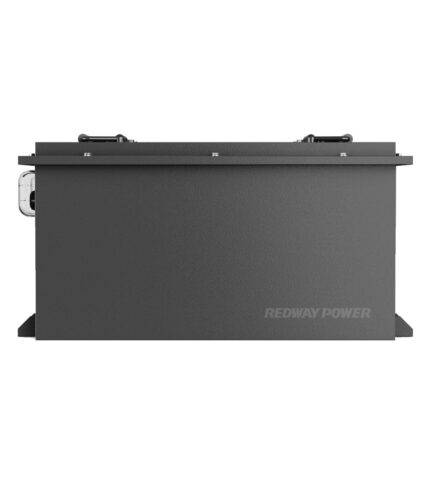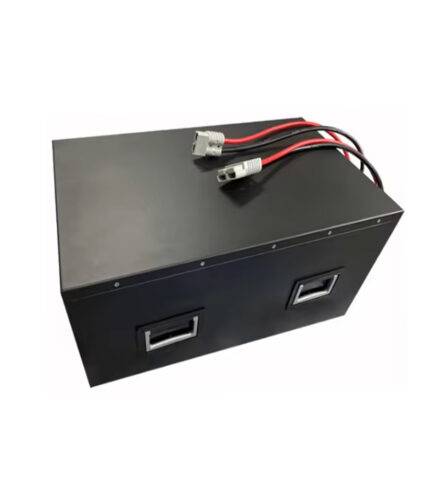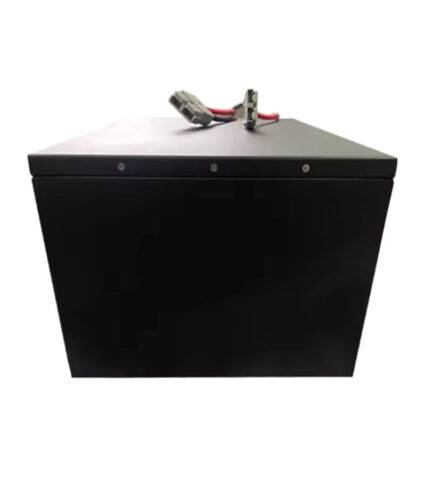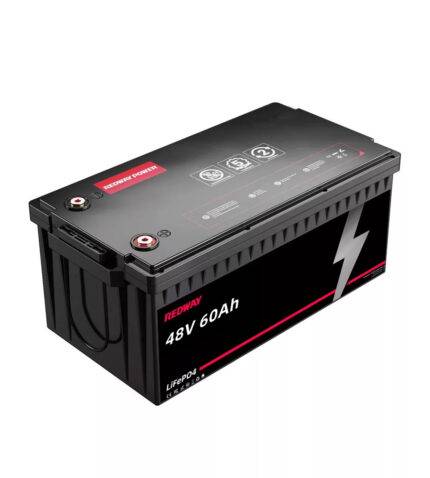- Forklift Lithium Battery
-
48V
- 48V 210Ah
- 48V 300Ah
- 48V 420Ah (949 x 349 x 569 mm)
- 48V 420Ah (950 x 421 x 450 mm)
- 48V 456Ah
- 48V 460Ah (830 x 630 x 590 mm)
- 48V 460Ah (950 x 421 x 450 mm)
- 48V 460Ah (800 x 630 x 600 mm)
- 48V 460Ah (820 x 660 x 470 mm)
- 48V 500Ah
- 48V 560Ah (810 x 630 x 600 mm)
- 48V 560Ah (950 x 592 x 450 mm)
- 48V 600Ah
- 48V 630Ah
-
48V
- Lithium Golf Cart Battery
- 12V Lithium Battery
12V 150Ah Lithium RV Battery
Bluetooth App | BCI Group 31
LiFePO4 Lithium
Discharge Temperature -20°C ~ 65°C
Fast Charger 14.6V 50A
Solar MPPT Charging - 24V Lithium Battery
- 36V Lithium Battery
- 48V Lithium Battery
-
48V LiFePO4 Battery
- 48V 50Ah
- 48V 50Ah (for Golf Carts)
- 48V 60Ah (8D)
- 48V 100Ah (8D)
- 48V 100Ah
- 48V 100Ah (Discharge 100A for Golf Carts)
- 48V 100Ah (Discharge 150A for Golf Carts)
- 48V 100Ah (Discharge 200A for Golf Carts)
- 48V 150Ah (for Golf Carts)
- 48V 160Ah (Discharge 100A for Golf Carts)
- 48V 160Ah (Discharge 160A for Golf Carts)
-
48V LiFePO4 Battery
- 60V Lithium Battery
-
60V LiFePO4 Battery
- 60V 20Ah
- 60V 30Ah
- 60V 50Ah
- 60V 50Ah (Small Size / Side Terminal)
- 60V 100Ah (for Electric Motocycle, Electric Scooter, LSV, AGV)
- 60V 100Ah (for Forklift, AGV, Electric Scooter, Sweeper)
- 60V 150Ah (E-Motocycle / E-Scooter / E-Tricycle / Tour LSV)
- 60V 200Ah (for Forklift, AGV, Electric Scooter, Sweeper)
-
60V LiFePO4 Battery
- 72V~96V Lithium Battery
- Rack-mounted Lithium Battery
- E-Bike Battery
- All-in-One Home-ESS
- Wall-mount Battery ESS
-
Home-ESS Lithium Battery PowerWall
- 24V 100Ah 2.4kWh PW24100-S PowerWall
- 48V 50Ah 2.4kWh PW4850-S PowerWall
- 48V 50Ah 2.56kWh PW5150-S PowerWall
- 48V 100Ah 5.12kWh PW51100-F PowerWall (IP65)
- 48V 100Ah 5.12kWh PW51100-S PowerWall
- 48V 100Ah 5.12kWh PW51100-H PowerWall
- 48V 200Ah 10kWh PW51200-H PowerWall
- 48V 300Ah 15kWh PW51300-H PowerWall
PowerWall 51.2V 100Ah LiFePO4 Lithium Battery
Highly popular in Asia and Eastern Europe.
CE Certification | Home-ESS -
Home-ESS Lithium Battery PowerWall
- Portable Power Stations
48V (51.2V) 100Ah Lithium Battery
• Cell: LiFePO4
• MOQ: 50
• Delivery: 20 Days
• Customizable / OEM / ODM: Yes
• Factory: Redway, Dongguan, Guangdong, China
• Delivery Terms: FOB, EXW, CIF
• Payment: T/T, L/C, PayPal
• Sea / Air / Land Shipment: 10FT, 20FT, 40FT, 60FT
Description
This battery is the 48V (51.2V) 100Ah Lithium Battery from Redway Power, a leading manufacturer based in China specializing in high-performance lithium-ion batteries. Designed with advanced LiFePO4 technology, this battery provides reliable energy solutions for various applications, ensuring exceptional performance and safety.
Key Features
- High Energy Capacity: With a nominal capacity of 100Ah and an energy output of 5,376Wh, this battery is ideal for powering demanding devices and systems.
- Long Cycle Life: Designed to last over 4,000 cycles at 80% depth of discharge (DOD), it significantly reduces the need for frequent replacements.
- Durable Construction: The battery features an IP67 rating, providing protection against dust and water ingress, making it suitable for challenging environments.
- Smart Battery Management System (BMS): Equipped with an intelligent BMS that safeguards against overcharging, overheating, and short circuits, ensuring safe operation.
- Customizable Options: As an OEM provider, Redway Power offers tailored solutions to meet specific customer requirements, including dimensions and additional functionalities.
Applications
The 48V (51.2V) 100Ah Lithium Battery is perfect for a variety of applications, including:
- Electric scooters
- E-rickshaws and e-trishaws
- E-motorcycles
- Automated Guided Vehicles (AGVs)
- Floor cleaning machines
With a charge voltage of 58.4V and a discharge voltage of 40V, this battery is optimized for various operational needs. It operates effectively across a temperature range from -20°C to 65°C, making it versatile enough for different industrial settings.The lightweight design of the battery facilitates easy installation and integration into existing systems while ensuring that your equipment operates efficiently throughout the day. Additionally, the battery supports fast charging capabilities, allowing for quicker turnaround times between uses.
As a trusted factory in China, Redway Power is committed to delivering high-quality lithium-ion batteries that enhance productivity and sustainability in your operations. The 48V (51.2V) 100Ah Lithium Battery not only reduces downtime but also contributes to lower operational costs due to its efficiency and long lifespan.Investing in this battery means choosing a reliable power solution that meets the demands of modern electric vehicles and industrial applications while supporting your business’s growth and sustainability goals. Choose Redway Power for your lithium battery needs and experience unparalleled performance and service.
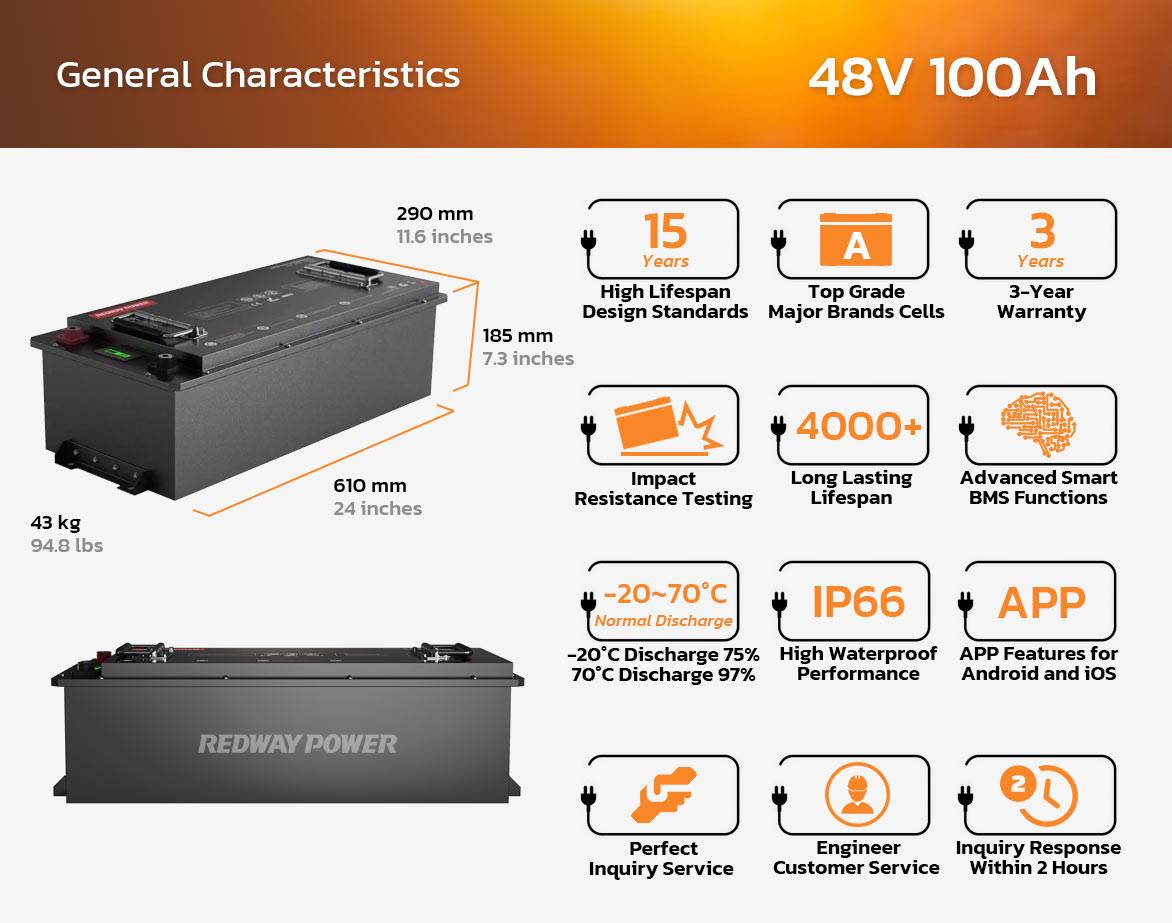
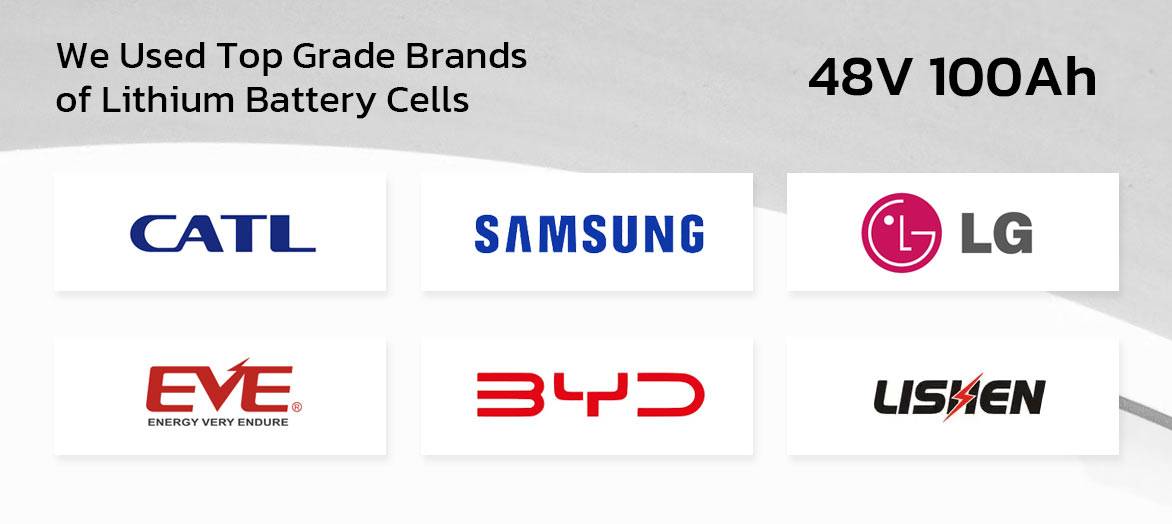
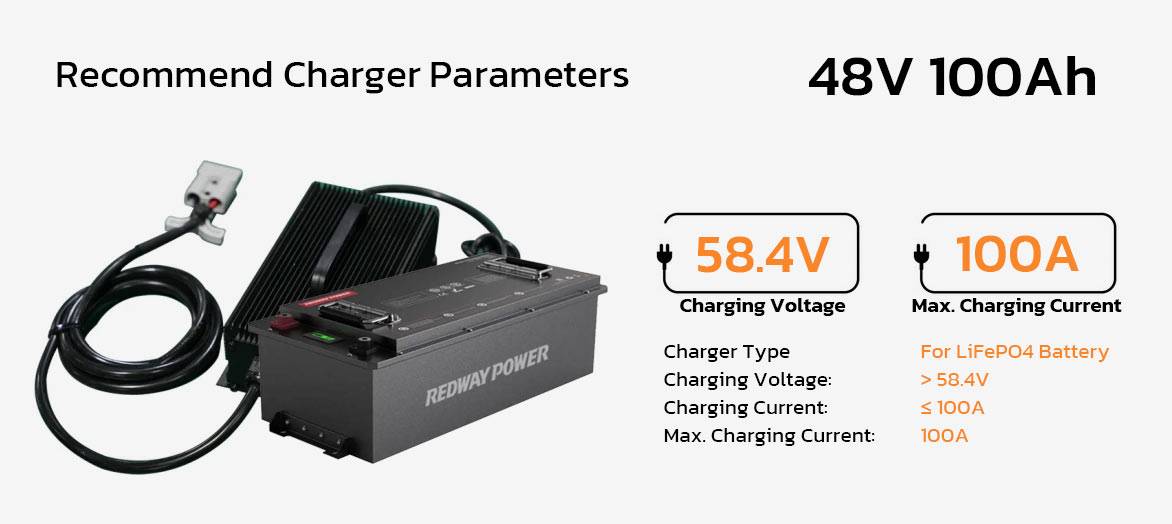
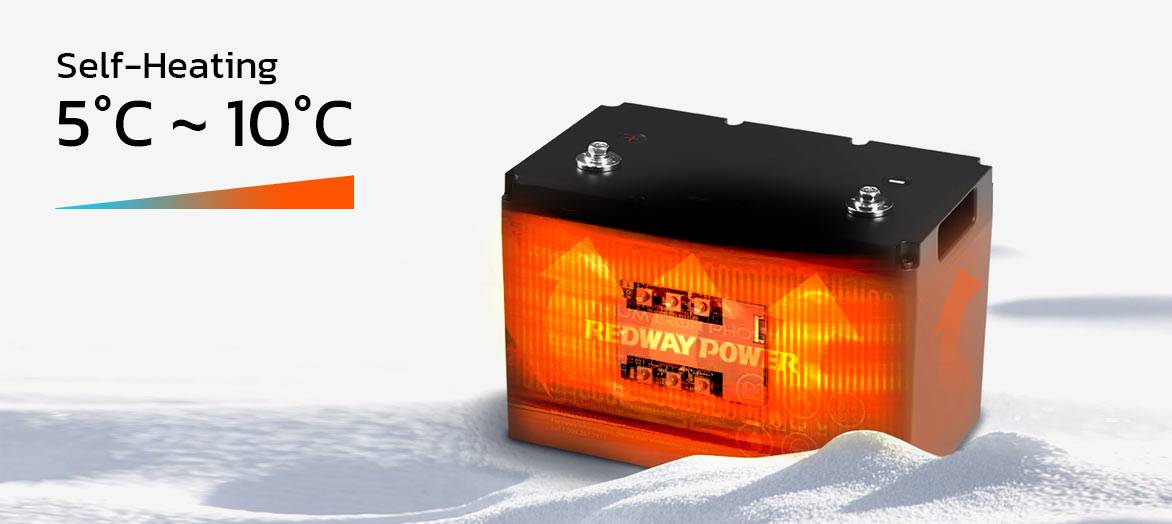
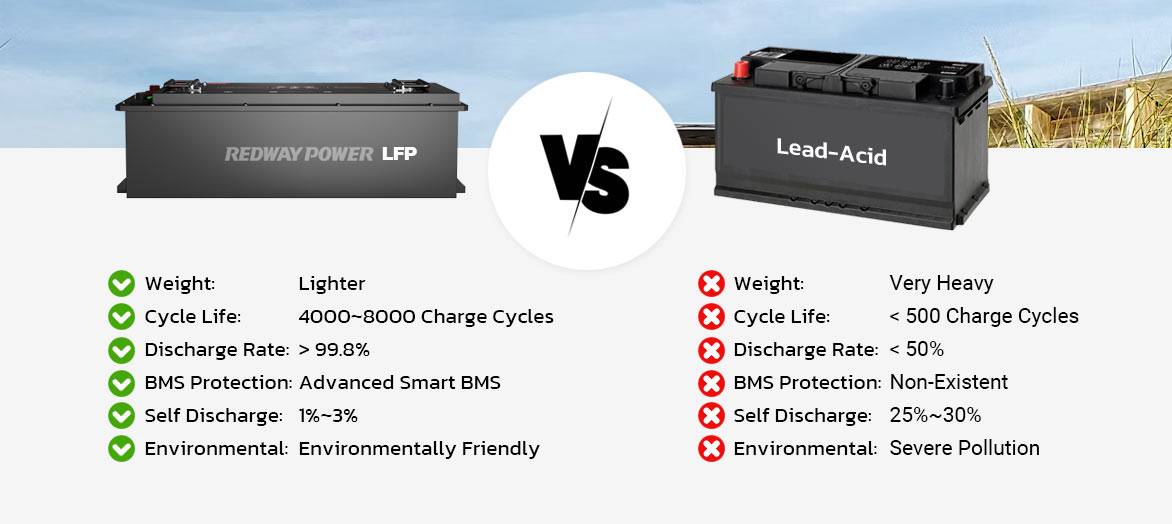
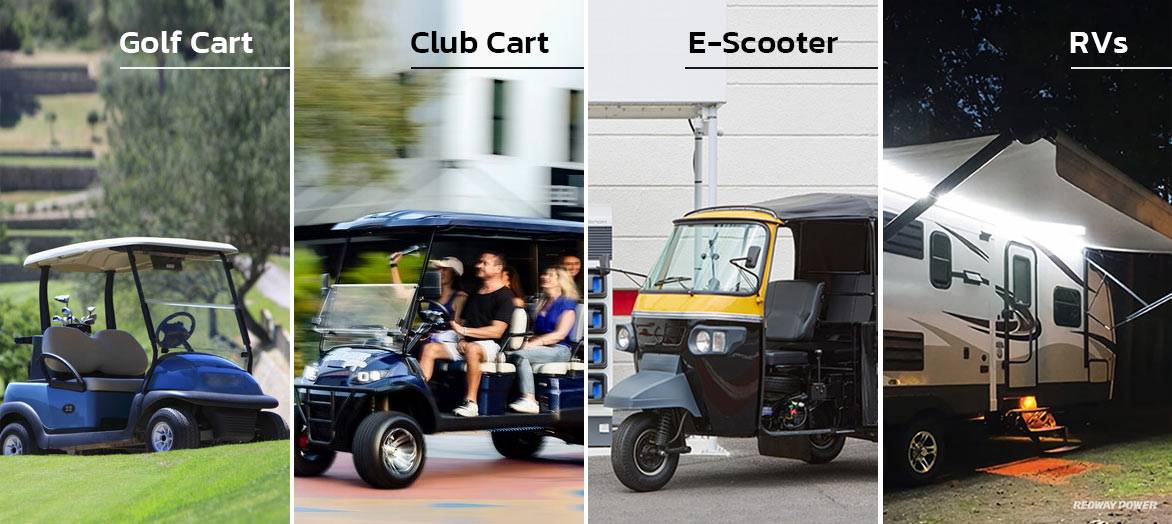
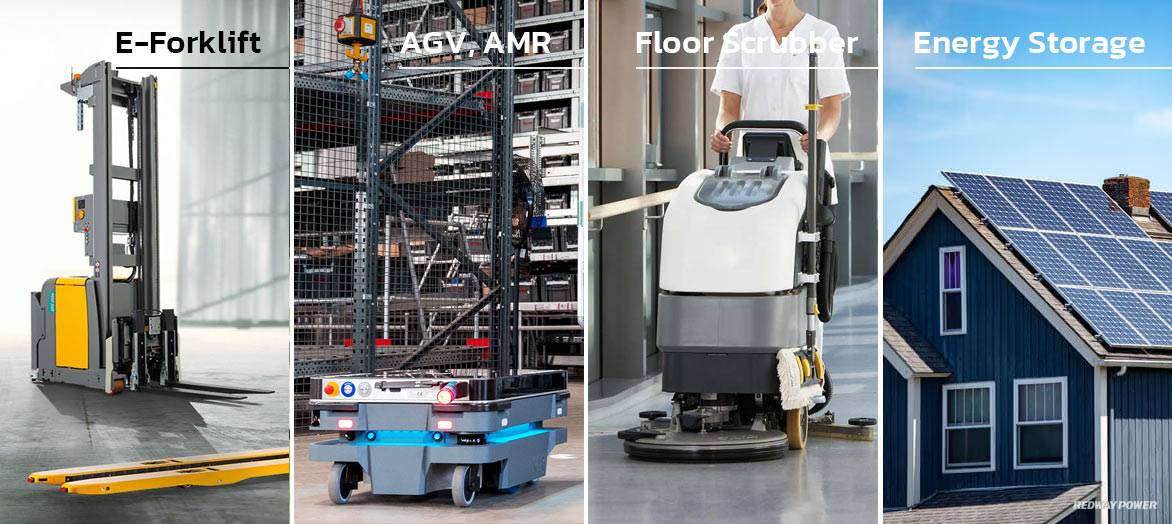
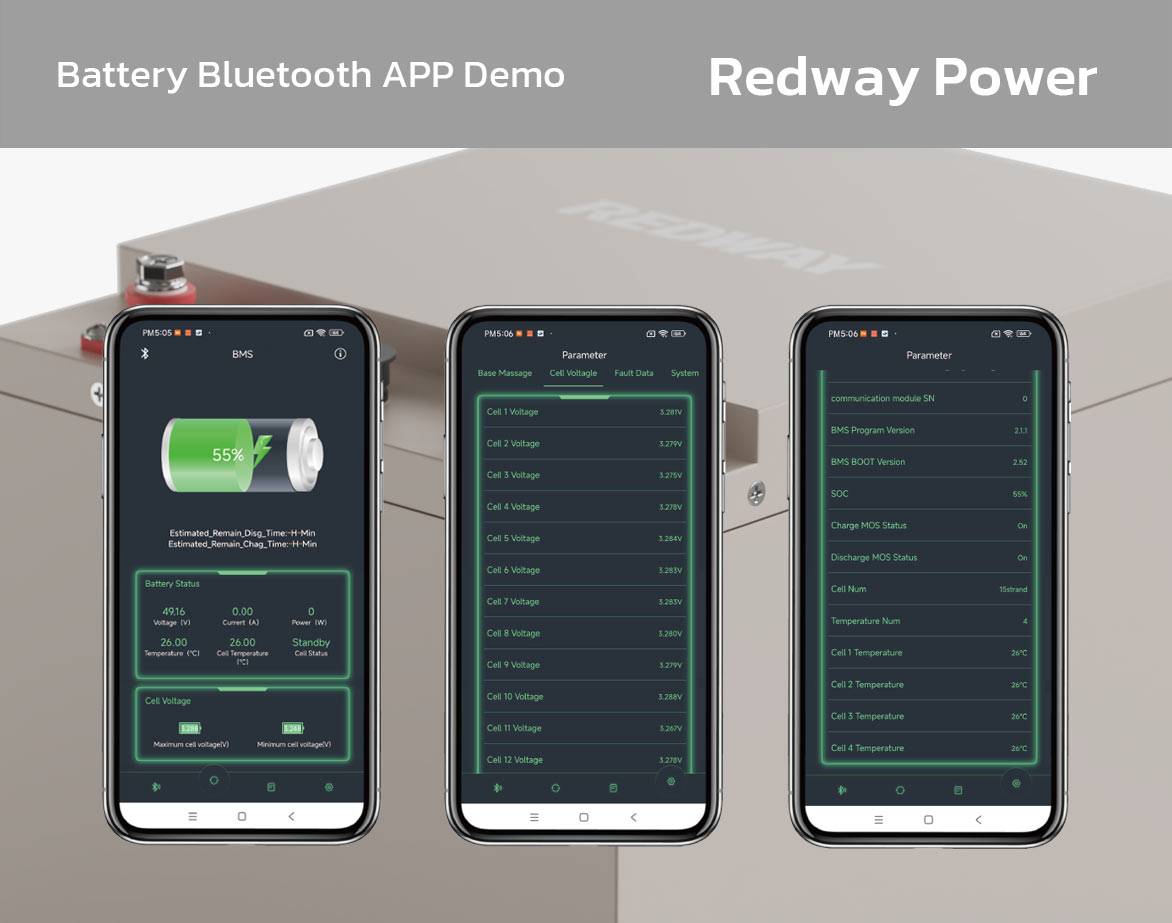
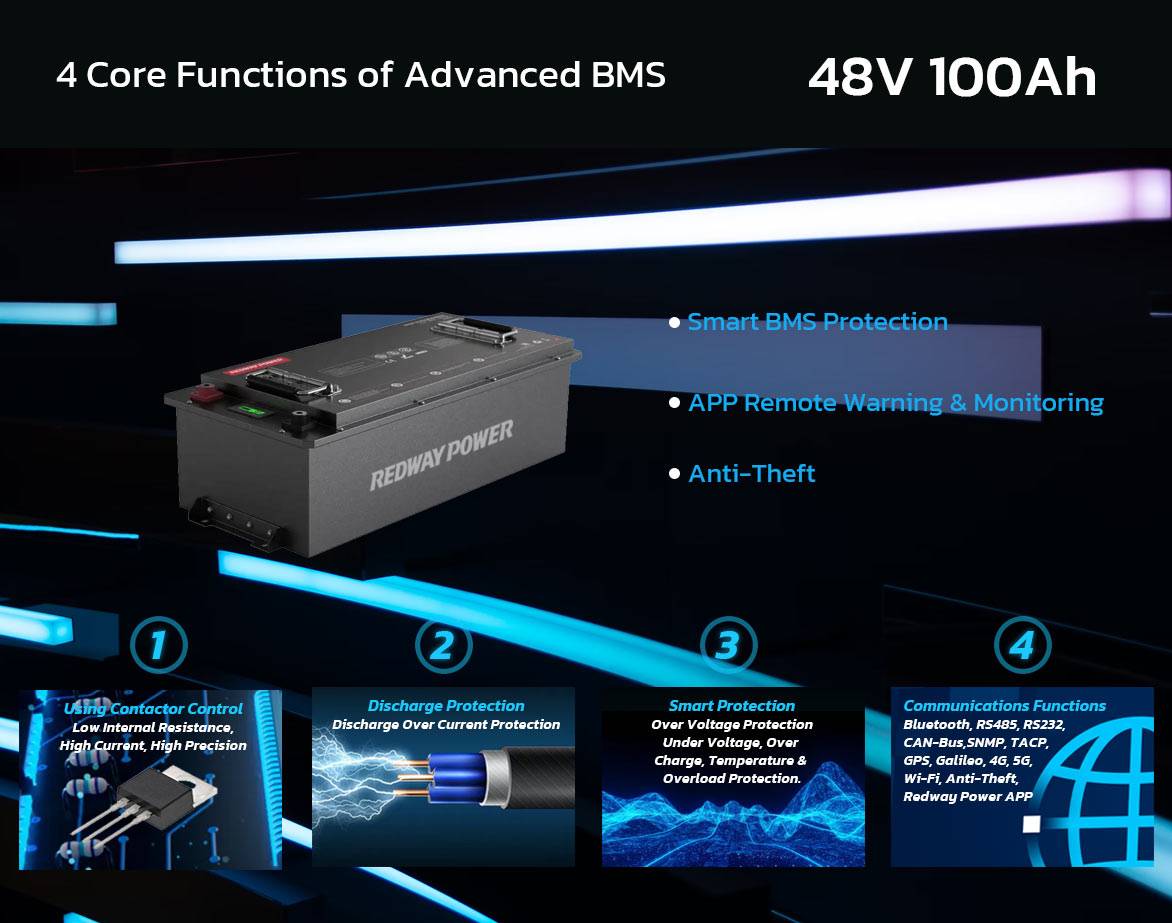
Specifications
Download Datasheet
Note: Our products are customizable, allowing customers to modify the main data according to their requirements.
| 48V 100Ah | Specifications |
|---|---|
| Cell Type | LiFePO4 |
| Nominal Voltage | 51.2V |
| Nominal Capacity | 105Ah |
| Nominal Energy | 5376Wh |
| Charge Voltage | 58.4V |
| Discharge Voltage | 40V |
| Max. Continues Charge Current | 100A |
| Max. Continues Discharge Current | 100A |
| Dimensions [L x W x H] | 610 x 290 x 185 mm 24.02 x 11.61 x 7.28 in |
| Weight | 43 kg 94.8 lb |
| IP Rating | IP67 (More request) |
| Series & Parallel | 16S7P |
| Max. Battery Parallel | 4P to 21.5kWh (More request) |
| Internal Resistance | ≤30mΩ |
| Cycle Life | >4000 cycles (DOD 80%) |
| Self-Discharge | 3% (Per month) |
| Charge Temperature | 0°C ~ 60°C 32°F ~ 140°F |
| Discharge Temperature | -20°C ~ 65°C -4°F ~ 149°F |
| LCD Screen | Yes |
| Optional Functions | Bluetooth / WiFi / LED Touch Screen / RS485 / RS232 / CAN / 4G, 5G / GPS / APP |
| Charger | High current fast charger |
| BMS | Intelligent BMS protection |
| Terminal | M8 Bolts |
| Battery Case | Metal |
| Warranty | 3 Years |
| Silk-Screen / Label Printing | Yes |
| User Manual / Warranty Card | Yes |
| Customization / OEM / ODM | Yes |
| Shipment | Yes |
| Certifications | IEC, UN38.3, MSDS (More request) |
Applications and FAQs
Encased in a metal shell, the 48V 100Ah LiFePO4 batteries offer a considerable improvement compared to traditional deep cycle batteries with similar specifications. Their adaptability makes them well-suited for a variety of purposes, including home security systems, outdoor expeditions, and solar-powered lighting. While standard sealed lead-acid (SLA) alternatives typically provide just 500 cycles, these lithium iron phosphate batteries can withstand up to 4000 cycles. This impressive resilience results in significantly lower costs per use than conventional batteries.
What is a 48V 100Ah lithium battery (48V 105Ah)?
Encased in a sturdy metal exterior, the 48V 100Ah lithium-ion battery serves as an unwavering energy storage solution for diverse uses. Its lightweight construction and exceptional efficiency surpass that of traditional lead-acid batteries, particularly in deep cycle applications. Boasting a capacity of 500Ah, it meets off-grid and backup power requirements with ease, seamlessly integrating with solar systems and UPS units. The designated voltage, capacity, and energy storage capability accurately reflect its impressive capabilities. Overall, this versatile and dependable option is well-suited for industrial, commercial, and residential energy storage needs.
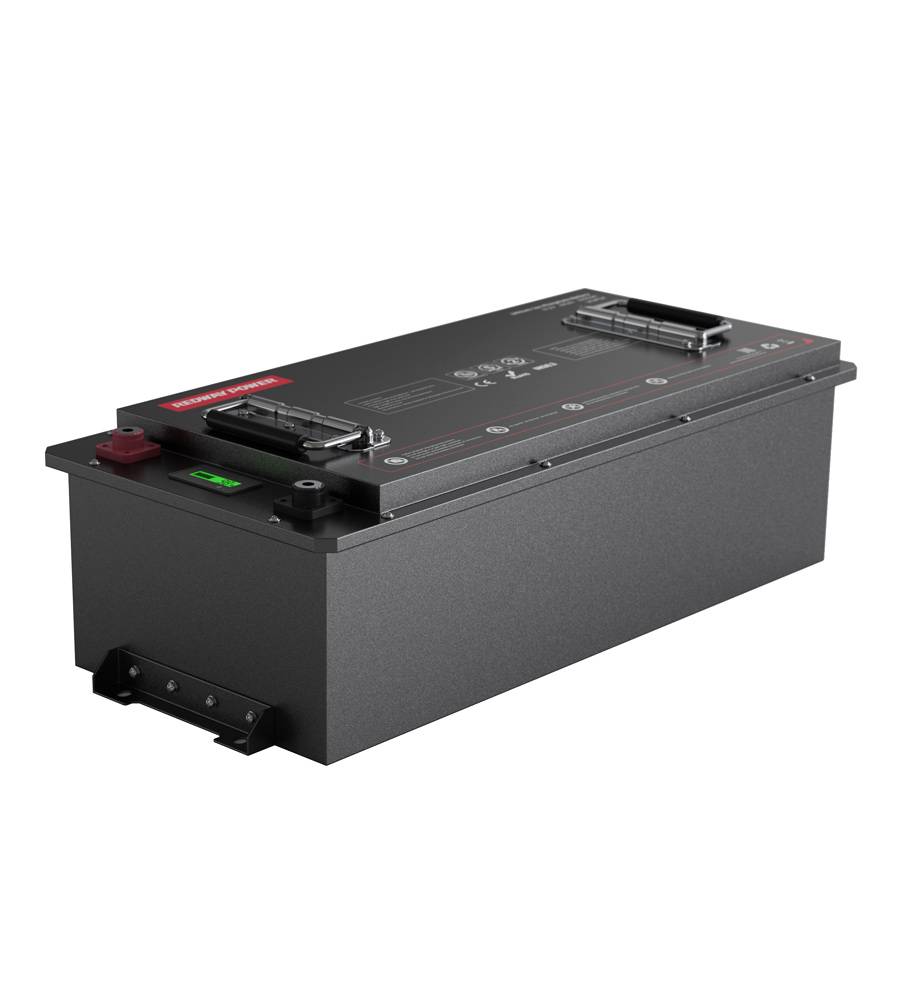
48V 100Ah batteries provide a total capacity of 100Ah at a continuous current output of 10.5 Amperes over a 10 hour discharge period. In other words, the battery has a storage capacity of 5,400 Watt-hours, or 5.4kWh, given its 48 volt voltage.
In summary, a 48V 100Ah lithium battery with a metal shell delivers versatility and reliability, making it an optimal choice for a broad range of industrial, commercial, and residential applications requiring steadfast energy storage solutions.
Why does this 48V 100Ah lithium battery use a metal shell?
The use of a metal shell in a 48V 100Ah lithium battery offers several advantages:
- Enhanced Protection: The metal shell provides robust protection against physical damage, moisture, and environmental factors, safeguarding the battery cells within from external impacts.
- Heat Dissipation: Metal shells possess good thermal conductivity, effectively dissipating heat generated during battery operation. This helps prevent overheating and maintains optimal performance.
- Durability: Metal shells are durable and resistant to impact, providing additional protection to the battery cells against mechanical shocks or vibrations, especially in demanding environments.
- Safety: The metal shell adds an extra layer of protection, reducing the risk of punctures or damage to the battery cells. This enhances overall safety by minimizing the chances of short circuits or leakage.
Overall, the use of a metal shell in a 48V 100Ah lithium battery enhances protection, heat dissipation, durability, and safety, ensuring reliable performance in various applications.
Where can you use a 48V 100Ah battery?
A 48V 100Ah lithium battery finds utility in a wide array of applications across various sectors due to its versatile and dependable power capabilities. Some common applications include:
- Electric Vehicles (EVs): Used as the primary power source in electric cars, buses, scooters, and bicycles, providing efficient and reliable energy storage for propulsion.
- Renewable Energy Systems: Integrated into solar energy storage systems to store surplus energy generated during the day for use during periods of low sunlight or at night.
- Telecommunications: Employed as backup power sources for cell towers, base stations, and communication networks to ensure uninterrupted operation during power outages.
- Marine and RV Power: Installed in boats, yachts, and recreational vehicles (RVs) to supply electrical power for lighting, appliances, navigation equipment, and auxiliary systems.
- Industrial Equipment: Utilized in material handling equipment, forklifts, electric pallet jacks, and other industrial machinery requiring reliable and long-lasting power sources.
- Off-Grid Power Systems: Deployed in remote or off-grid locations where access to the electricity grid is limited, providing sustainable power for lighting, appliances, and other electrical loads.
- Backup Power Systems: Integrated into uninterruptible power supply (UPS) units for critical facilities such as data centers, hospitals, and emergency response centers to ensure continuous power supply during grid failures.
In summary, the versatility and reliability of a 48V 100Ah lithium battery make it suitable for a broad range of applications, ranging from transportation and renewable energy to telecommunications and industrial use.
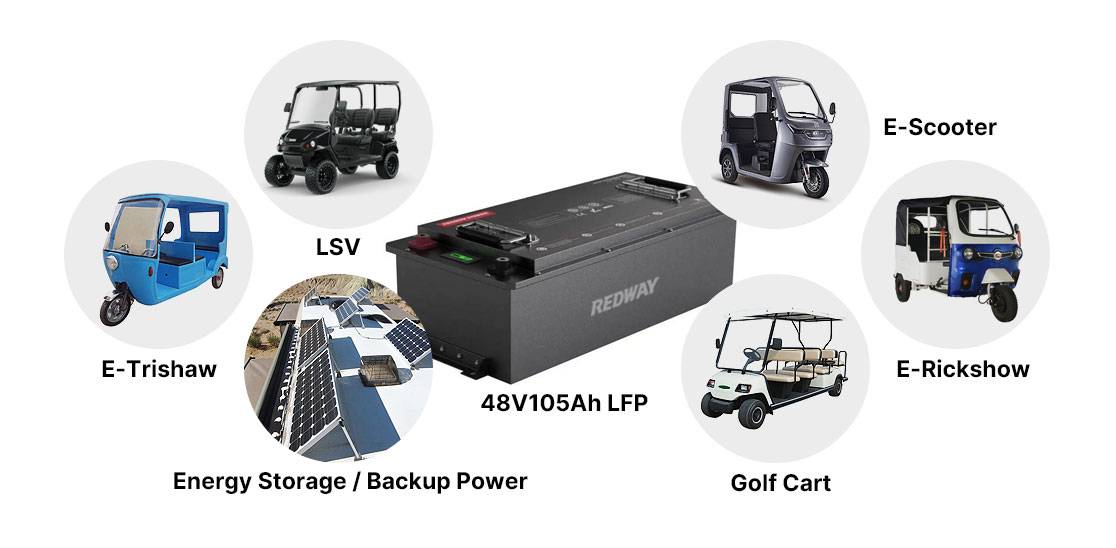
What are the advantages of a 48V 100Ah lithium-ion battery (metal shell)?
48V 100Ah lithium battery is typically a rechargeable lithium-ion battery used in applications requiring continuous power. The advantages of a 48V 100Ah lithium-ion battery with a metal shell include:
- Enhanced Protection: The metal shell provides robust protection against physical damage, moisture, and environmental factors, ensuring the battery's safety and longevity.
- Efficient Heat Dissipation: Metal shells have good heat dissipation properties, effectively dispersing heat generated during battery operation, preventing overheating, and maintaining optimal performance.
- Durability: Metal shells are sturdy and resilient, offering resistance to impact and vibration, making them suitable for demanding applications or harsh environments.
- Safety: The metal shell adds an extra layer of protection against external hazards and potential punctures, reducing the risk of short circuits or leakage, and ensuring a safer operating environment.
Overall, a 48V 100Ah lithium-ion battery with a metal shell provides reliable protection, efficient heat dissipation, durability, and safety, making it an optimal choice for various industrial, commercial, and residential applications.
What are the disadvantages of a 48V 100Ah lithium battery (metal shell)?
The disadvantages of a 48V 100Ah lithium-ion battery with a metal shell may include:
- Weight: Metal shells add weight to the battery, making it heavier than batteries without metal casings, which can affect portability and ease of handling.
- Cost: The inclusion of a metal shell may increase the manufacturing cost of the battery, potentially leading to a higher purchase price compared to batteries with alternative casing materials.
- Limited Flexibility: Metal shells may limit the design flexibility of the battery, making it challenging to accommodate specific form factors or configurations required for certain applications.
- Corrosion Potential: Depending on the material used for the metal shell, there may be a risk of corrosion over time, particularly in environments with high humidity or exposure to corrosive substances.
While these disadvantages exist, they may be outweighed by the benefits provided by the metal shell in terms of protection, durability, and safety, depending on the specific requirements of the application.
How long will a 48V 100Ah battery (metal shell) last if fully charged?
The lifespan of a fully charged 48V 100Ah lithium battery with a metal shell depends on various factors such as the load it powers, discharge rate, temperature, and depth of discharge. Generally, you can estimate the battery's runtime by dividing its capacity (100Ah) by the load's current draw (in amperes). For instance, if the load draws 10 amps, the battery would last approximately 10.5 hours (100Ah ÷ 10A = 10.5 hours) under ideal conditions. However, actual runtime may vary due to factors like temperature and discharge depth.
48V 100Ah lithium battery vs lead-acid battery, which is better?
Let's compare the advantages of the 48V 100Ah lithium battery with lead-acid batteries point by point:
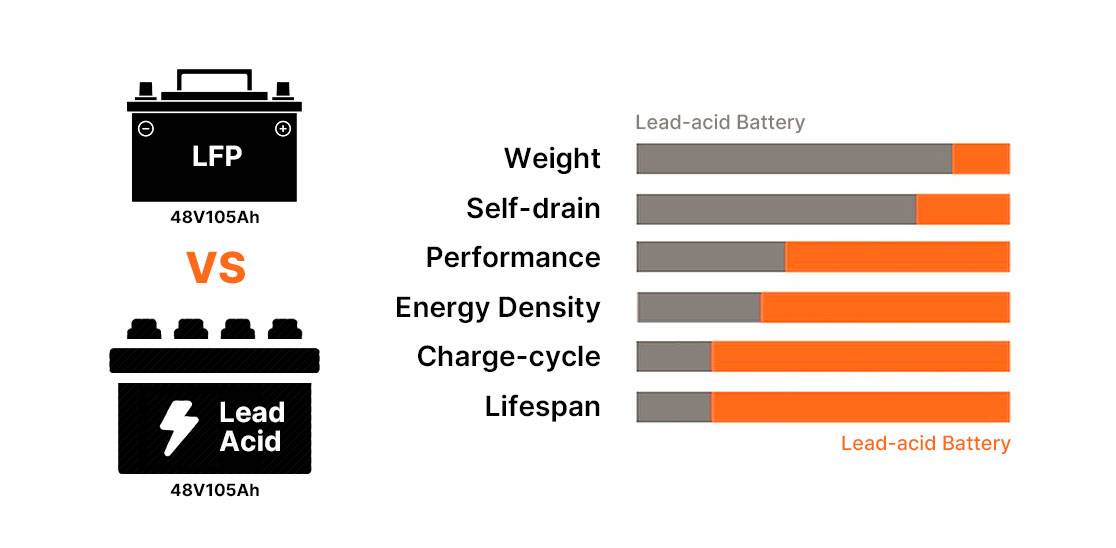
- Higher Energy Density: Lithium batteries typically offer higher energy density, providing more power in a lighter and more compact package compared to lead-acid batteries.
- Longer Cycle Life: Lithium batteries have a longer cycle life, enduring more charge-discharge cycles before experiencing capacity degradation compared to lead-acid batteries.
- Faster Charging: Lithium batteries charge more efficiently and have lower self-discharge rates than lead-acid batteries, ensuring stored energy is retained for longer durations.
- Lightweight Design: Lithium batteries are lighter than lead-acid batteries, making them ideal for applications where weight is a concern, such as in portable devices or electric vehicles.
In summary, the 48V 100Ah lithium battery offers significant advantages over lead-acid batteries in terms of energy density, cycle life, charging speed, weight, compactness, and maintenance requirements.
What quality standards does Redway Power apply to 48V 100Ah lithium battery?
Redway Power adheres to stringent quality standards for its 48V 100Ah lithium batteries, ensuring reliability and safety:
- Compliance with International Standards: Redway Power ensures adherence to internationally recognized standards such as ISO 9001 for quality management systems and ISO 14001 for environmental management systems during the manufacturing process.
- Certifications for Safety and Compliance: The company obtains certifications like UL (Underwriters Laboratories) or CE (Conformité Européenne) to demonstrate compliance with safety and product standards in specific regions.
- Rigorous Testing Procedures: Batteries undergo thorough testing, including the IEC 62133 test, to verify safety and prevent short-circuiting during transportation and use.
- Stringent Manufacturing Processes: Redway Power implements stringent manufacturing processes to maintain consistency and quality throughout battery production.
- Comprehensive Quality Control Measures: The company employs comprehensive quality control measures to monitor and ensure battery quality and performance at every stage of production.
Adhering to these quality standards ensures that Redway Power's 48V 100Ah lithium batteries meet industry and regulatory requirements, guaranteeing reliable performance and safety for users.
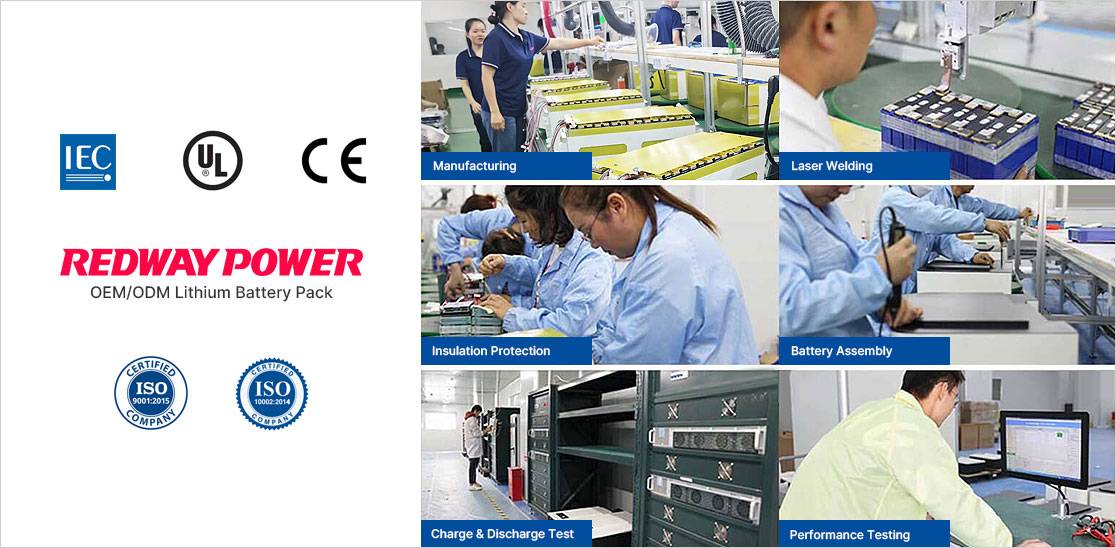
Is it safer to use a 48V 100Ah lithium-ion battery?
Yes, using a 48V 100Ah lithium-ion battery can be considered safer compared to traditional lead-acid batteries for several reasons:
- Chemical Stability: Lithium-ion batteries are chemically stable and less prone to leaking or spilling acid, reducing the risk of chemical exposure and environmental contamination.
- Built-in Protection Circuits: Lithium-ion batteries typically have built-in protection circuits that help prevent overcharging, over-discharging, and short circuits, reducing the risk of thermal runaway and fire.
- Lightweight Construction: Lithium-ion batteries are lighter than lead-acid batteries, making them easier to handle and transport. This reduces the risk of accidents during installation or maintenance.
- Efficient Cooling: Lithium-ion batteries dissipate heat more efficiently than lead-acid batteries, reducing the risk of overheating and thermal runaway.
Overall, while lithium-ion batteries offer these safety advantages, it's essential to follow proper handling, storage, and charging procedures to minimize risks further. Additionally, selecting batteries from reputable manufacturers with stringent quality control measures can enhance overall safety.
What are the features of a 48V 100Ah lithium-ion battery (metal shell)?
Encased in a durable metal shell, this 48V 100Ah lithium-ion battery boasts an impressive range of features suitable for various applications. Its high energy density enables enhanced storage capacity in a compact and lightweight structure, differentiating it from traditional lead-acid batteries. With a prolonged cycle life, this battery maintains consistent performance through multiple charge and discharge cycles without significant capacity loss. Moreover, these lithium-ion batteries offer efficient charging capabilities, minimal self-discharge, and low maintenance requirements, making them a reliable and economical power source.
What are the specifications of a 48V 100Ah lithium-ion battery?
The standard specs for a 48V 100Ah lithium-ion battery include its voltage rating and capacity, along with other notable details such as size, weight, maximum discharge current, temperature range, cycle life, and safety features like built-in protection circuits. These specifications may differ depending on the manufacturer and purpose of use. To guarantee compatibility and optimal performance for particular needs, it is essential to refer to the datasheet or product specifications.
How to maintain a 48V 100Ah lithium-ion battery?
Maintaining a 48V 100Ah lithium-ion battery involves several key steps to ensure optimal performance and longevity:
- Avoid Deep Discharges: Try to avoid fully discharging the battery whenever possible. Lithium-ion batteries generally perform best when kept within a state-of-charge (SoC) range of 20% to 80%.
- Regular Charging: Keep the battery charged regularly, ideally after each use. Lithium-ion batteries do not have a memory effect, so there's no harm in partially charging them.
- Use a Compatible Charger: Use a charger specifically designed for lithium-ion batteries and follow the manufacturer's guidelines for charging voltage and current.
- Temperature Control: Avoid exposing the battery to extreme temperatures, both hot and cold, as it can affect performance and lifespan. Store and operate the battery within the recommended temperature range.
- Inspect for Damage: Regularly inspect the battery for signs of physical damage, leakage, or swelling. If any issues are detected, discontinue use and seek professional assistance.
- Avoid Overcharging: Avoid leaving the battery connected to the charger for extended periods after it's fully charged. Overcharging can degrade the battery and reduce its lifespan.
- Proper Storage: If the battery will be unused for an extended period, store it in a cool, dry place with a moderate state-of-charge (around 50%). Avoid storing the battery in a fully charged or fully discharged state.
- Follow Manufacturer Recommendations: Always follow the manufacturer's recommendations for maintenance, charging, and storage outlined in the user manual or documentation provided.
By following these maintenance practices, you can maximize the performance, lifespan, and safety of your 48V 100Ah lithium-ion battery.














